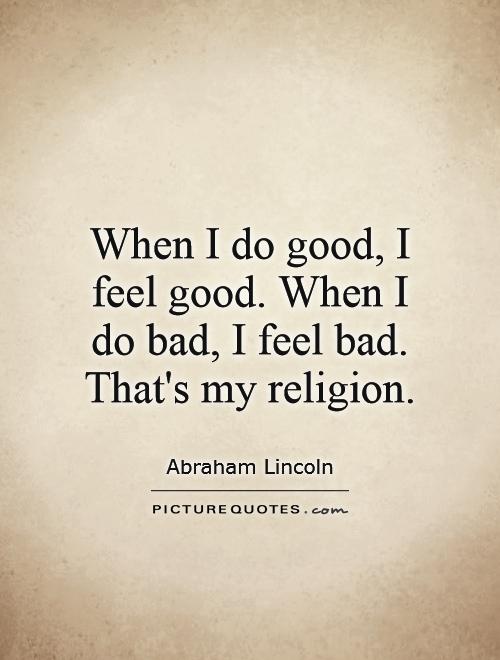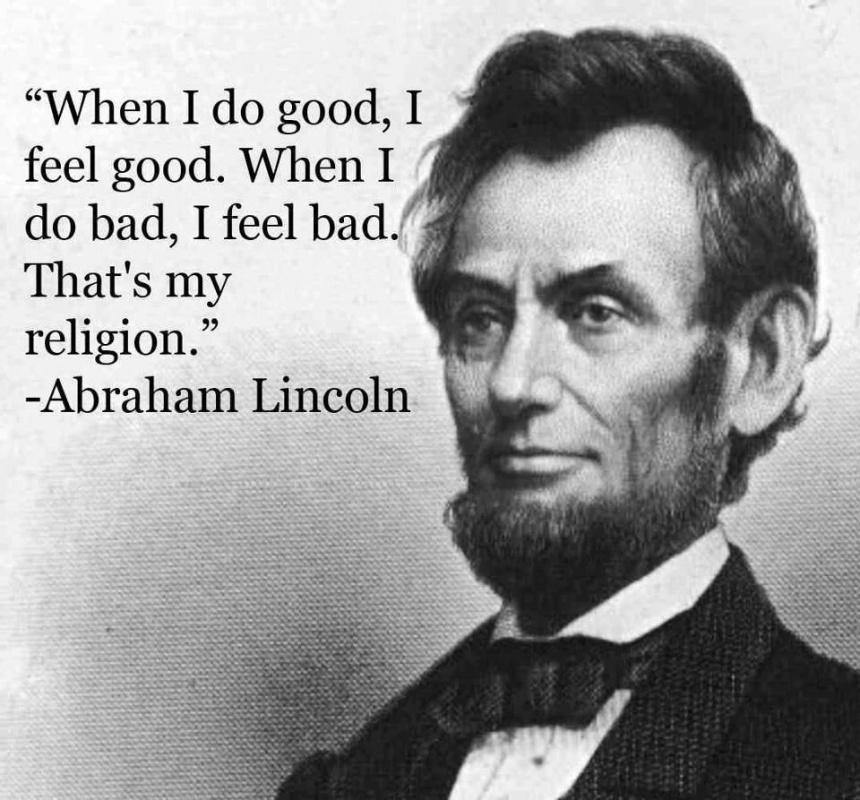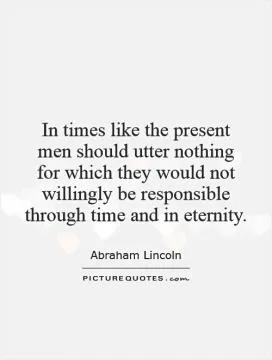When I do good, I feel good. When I do bad, I feel bad. That's my religion


When I do good, I feel good. When I do bad, I feel bad. That's my religion
Abraham Lincoln, the 16th President of the United States, is often remembered for his strong moral compass and unwavering commitment to doing what he believed was right. His quote, “When I do good, I feel good. When I do bad, I feel bad. That's my religion,” encapsulates his belief in the importance of living a virtuous life and the impact that our actions have on our own well-being.Throughout his presidency, Lincoln faced numerous challenges and difficult decisions, particularly during the Civil War. Despite the immense pressure and criticism he faced, Lincoln remained steadfast in his commitment to doing what he believed was right, even when it was unpopular or controversial. He believed that acting with integrity and compassion was not only the right thing to do, but also essential for his own sense of well-being.
Lincoln’s quote reflects his belief in the interconnectedness of morality and personal happiness. He understood that our actions have consequences, not only for those around us but also for ourselves. When we act with kindness, honesty, and integrity, we not only benefit others but also experience a sense of fulfillment and inner peace. Conversely, when we act in ways that are dishonest, selfish, or harmful, we not only harm others but also experience feelings of guilt, shame, and regret.
Lincoln’s belief in the importance of doing good and feeling good is a powerful reminder of the impact that our actions have on our own well-being. By striving to live a life guided by principles of kindness, compassion, and justice, we not only contribute to the greater good but also cultivate a sense of inner peace and contentment. Lincoln’s legacy serves as a timeless example of the power of moral integrity and the profound connection between doing good and feeling good.












 Friendship Quotes
Friendship Quotes Love Quotes
Love Quotes Life Quotes
Life Quotes Funny Quotes
Funny Quotes Motivational Quotes
Motivational Quotes Inspirational Quotes
Inspirational Quotes